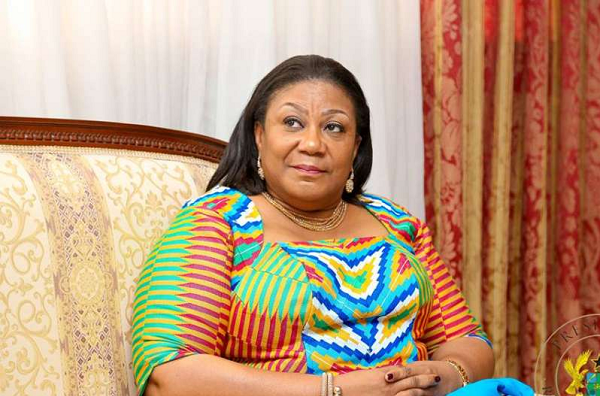
40-year-old dream comes true as Aunty Rebecca inaugurates Bisa Abrewa
Social philosophy and social psychology have always asked: who is more important - the individual or the society?
The answer to this question created the American system which sets up strong social structures to protect the right of the individual to develop in freedom.
Advertisement
At the opposite end of the pole, it is responsible for the system in former communist USSR or China which, “for the fatherland” (society), suppresses individual rights.
I believe that from the social, economic and political upheavals within society, individuals emerge who cause great changes.
Once in the 16th century, there lived an individual, a German monk and theologian called Martin Luther.
This one individual’s vehement opposition to some teachings and practices of the Roman Catholic Church, particularly the “Indulgences”, birthed the Protestant Reformation after which the structures in Christianity have never been the same again.
Four hundred years later, another Luther was born - Martin Luther King Jr. A single speech by this one individual Baptist minister and activist changed the course of the American civil rights movement forever.
There are other individuals who begin a revolution whose effect is not necessarily an instant boom. It sits on the minds of a handful of people at a time who, as part of a critical mass, are able to carry the ideals to generations down the line.
One such individual lived in the Gold Coast, now Ghana. Christened William Essuman-Gwira Sekyi in 1892, he came to be known as Kobina Sekyi.
A lawyer educated in England, he was the last president of the Aborigines Right Protection Society (ARPS) in the Gold Coast. But that is not what stands out this individual in history. Born into a Cape Coast aristocratic family, he dropped the European name, William, given him by his father and Africanised his family name to Sekyi, when he became conscious that Sekyi had been anglicised to Sackey to suit the European tongue.
Kobina Sekyi became the first lawyer in the British colony to appear in court in a traditional African cloth. Clad defiantly in his Kente cloth once outside the law courts he never wore a coat and European dress till his death in 1956.
The people’s obsession for European clothes, names and lifestyle, nauseated him, causing him to write what is regarded as the first Ghanaian play, ‘The Blinkards’ (1915) in which he set out to pour contempt on all "Europeanised Africans".
A century later, in 1941, Ɔbɔadze Nyame, creator of the universe, poured Sekyi’s life into another African. His name is Kwaw Paintsil Ansah, advertiser, playwright, film director and producer, better known for his award-winning films - ‘Love Brewed in the African Pot’ (1980), ‘Heritage Africa’ (1989), ‘Crossroads of People, Crossroads of Trade’ (1994) - and his powerful, imagery-laden stage play, ‘Mothers Tears’.
Kwaw Ansah’s life revolves around and obeys the African in him. Asked why he produces the same themes throughout his creative works, he replies: “I cannot afford not to since, as you may know, the Black Race in general has gone through a long period of foreign cultural intrusions and interventions. We, as a Black people, have contributed much to world culture and we still have much to contribute”.
What was said about Lawyer Sekyi can today be said about Kwaw Ansah. He looks “with ill-concealed pity and scorn at” those African compatriots who so pathetically show they cannot live outside… the ridiculous habits they had cultivated from the West, like wearing black woollen coats and striped trousers “in the middle of the torturing heat of Africa, or affecting English food tastes”.
Kwaw Ansah, like his predecessor, Kobina Sekyi, seeks to change the dominant mental images in the minds of his people through the creative arts (he is, in addition, a musician). Again, like Kobina Sekyi, Kwaw Ansah, starting from ‘Heritage Africa’, has set out to point at the ridiculous, if not pathetic, practice of Europeanising our African names; for example, from Kwesi to Quincy, from Atta to Arthur, from Otsen (i.e ‘Righteous’) to Austin, from Atta Panyin (elder twin) to Arthur Payne.
This column is not about Kwaw Ansah, the individual. It is about Kwaw Ansah, the institution. More than that, it is about the institution which he set out, 40 years ago, to build for the sole purpose of raising “a memorial to my heroes and, by this, open new windows of insights upon the lives and philosophies of the greatest heroes of our people, namely Yaa Asantewa, Yennenga, Harriet Tubman, Nat Turner, Marcus Garvey,
William Du Bois, Kwame Nkrumah, Sekou Toure, Modibo Keita, Malcom X, Frederick Douglas, Martin Luther King Jnr, James Brown, Bob Marley and inspire my generation and generations to come with the values they stood for”
He calls this institution Bisa Abrewa Museum, arguably the largest collection (over 2,000 exhibits) of sculptural and pictorial representations of the people who fought to set Africa free.
On Sunday afternoon, July 28, the First Lady of the land, Mrs Rebecca Naa Okaikor Akufo Addo, will roll away the gates to formally inaugurate Bisa Abrewa (literally “Ask the Old Woman”) at a ceremony at Nkotompo in Sekondi that promises to evoke and reflect the African spirit.
APOLOGIES: Last week, I inadvertently attributed to ‘Kobby Asmah’, the reprehensible action of a former Deputy Minister of the Interior, Mr Kobby Acheampong. The slip is regretted.




